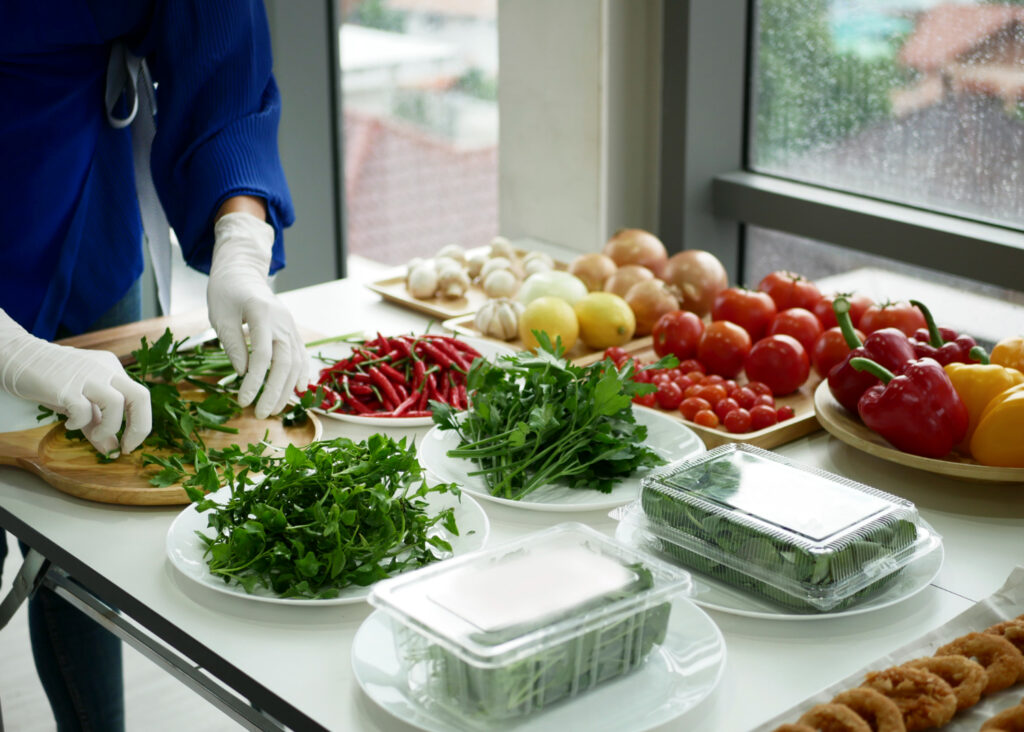Globalization has brought food from all over the world, but it also poses new risks and challenges to food safety. Foodborne illnesses have serious impacts on public health and the economy. To address these risks, the FDA Food Safety Modernization Act (FSMA) was passed, calling for more comprehensive Safe Food Handling programs and training. The demand for skilled Safe Food Handling professionals is increasing, making it an excellent time to enter the field.
1. The Opportunity to Make a Difference
Food safety professionals prevent deadly pathogens from contaminating our food, impacting millions of people’s health. They feel a great sense of purpose, in solving global food issues. Jobs in Safe Food Handling are critical to public health, food defence, and food security. For them, food handling is not just a job; it’s a personal mission. Careers in Safe Food Handling offer a chance to create a global impact while performing meaningful, socially responsible work in an ever-changing environment.
2. A Dynamic Environment
Food safety professionals face new challenges every day. From inspecting products on a production line to leading boardroom meetings, the job is dynamic and can involve touring factories. 74% of regulatory workers have international responsibilities with ever-changing regulations. Rapid technology developments are happening in Safe Food Handling and food authenticity creating exciting opportunities for professionals to explore.
3. Career Flexibility
Food safety workers are needed in every phase of the food supply chain, providing professionals with great flexibility in their career paths. Jobs are available in agriculture, product development, manufacturing, labelling, regulatory approvals, marketing, and distribution. Professionals can work in small facilities, mid-sized companies, or large, multinational corporations, with plenty of employment options.
Gaining food safety expertise can open up various career paths in areas such as nutrition, sustainability, trade, environmental justice, human rights, education, rural and urban development, law, business, and marketing.
4. Job Security
The food industry is a reliable and adaptable career choice. It is a five-trillion-dollar global market that employs millions of individuals worldwide. With the global population anticipated to rise to 9.6 billion by 2050, the food industry will face mounting demands to provide safe and authentic food. This will necessitate a substantial increase in the number of skilled workers.
There are several factors that will drive job growth and security in the future. These include:
- Innovations in Safe Food Handling throughout the entire farm-to-table process.
- The increasing globalization of food systems.
- Stricter laws related to Safe Food Handling, such as the Food Safety Modernization Act.
- Greater public awareness of the importance of nutrition and safe Food Handlingy.
- A stronger focus on transparency across the food supply chain has led to the adoption of blockchain technology.
Common Food Safety Careers
Professionals in the Safe Food Handling industry commonly hold job titles such as
1. Food Safety Specialist
Food safety specialists monitor food safety and quality to protect the public from foodborne illness. They oversee food preparation, processing, storage, packaging, and distribution processes to ensure compliance with regulations. They work in various environments and assist in developing Safe Food Handling processes and evaluation methods. The average annual compensation for a food safety specialist is $52,429, but salaries can increase to over $70,000 depending on location and experience.
2. Food Safety Manager/Quality Assurance Manager
Food safety managers design and enforce food handling processes in food production environments. They ensure proper preparation, storage, and packaging of food items. They audit and evaluate the processes to ensure their effectiveness and compliance with standards. Safe Food handlers earn a competitive average annual salary of $98,393, according to Glassdoor.
3. Compliance Officer
Food industry compliance officers enforce food safety policies through routine inspections or audits. They work for government agencies like the FDA or food production companies to ensure compliance with regulations and identify issues, implementing strategic solutions. On average, they make $67,607 per year.
Tips For Breaking Into Food Safety
To start a career in food safety, it’s essential to understand Safe Food Handling regulations, develop a global perspective, stay up-to-date with industry trends, and consider earning an advanced degree. Food safety professionals must be aware of emerging technologies to respond accordingly. Completing a master’s degree in regulatory affairs can give you a competitive edge. The demand for skilled food safety professionals is increasing, so consider your options if you want to break into the industry.
Safe Food Handling Certification . Safe Food handling ensures the safe handling of prepared, processed, served packaged, and stored food and understanding of food allergies. This certification will open job opportunities within the food industry as well as nursing homes or any facility that serves food to the public. Certificate valid for 5 years in Ontario

